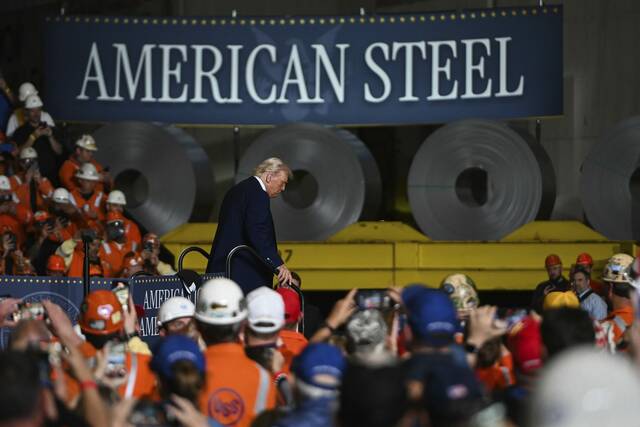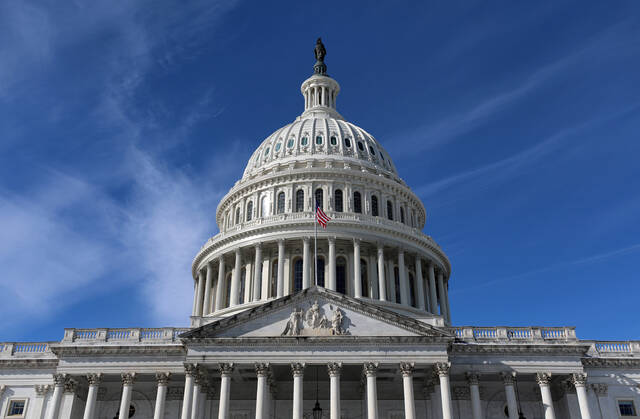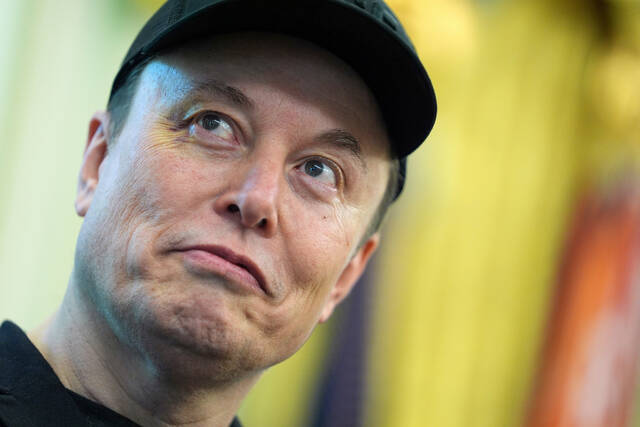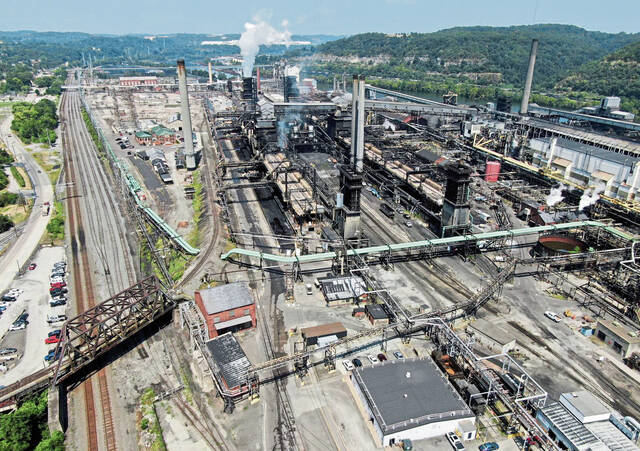Today Pittsburgh hosts the inaugural edition of Sen. Dave McCormick’s Energy and Innovation Summit. The event will gather champions in energy and AI, investors, labor leaders and government officials. The focus will be on American energy dominance for a new technological era — and the opportunity that provides.
Western Pennsylvania is the right host and now is the right moment. Understanding why requires understanding not only the opportunity at hand but also the threat that the United States faces should it not capitalize on that opportunity. China, too, is pursuing energy and technology. And since joining the WTO 25 years ago, China has been at it with the explicit goal of overtaking the United States economically, industrially and militarily. China’s approach must inform the U.S. energy and innovation agenda.
First, China’s approach should create a sense of urgency. Last month, China’s energy and tech elite descended on Hangzhou for their 2025 National Energy Conference. Like the Pittsburgh event, this gathering convened industrial, academic and political leaders seeking to align efforts building a “new national energy system” for the digital era. Unlike the upcoming Pittsburgh event, there was nothing inaugural about the Hangzhou conference. It was just the latest iteration of an annual gathering that dates back almost a decade. Nor was the Hangzhou event an empty conversation. Beijing has, for years, been acting on its ambitions, and at scale. Since 2018, the Chinese government has been developing a national data and computing infrastructure — and matching energy supply — to fuel and connect the country’s information system.
Second, China’s approach should make the U.S. orient competitively. Beijing pursues energy and technological leadership with a zero sum ambition to win. That national data and computing infrastructure? Its goal is to “build new advantages for national competition and determine the future global landscape.” If China determines the future global landscape, that will come at a cost for the United States.
Third, in its competitive orientation, the U.S. has to recognize the importance of industry, including energy and manufacturing hubs, and the threat of China’s current lead in those domains. China has already decimated the manufacturing that America once led — and that made the country, and Western Pennsylvania, prosperous. Now, China is positioning to capture next-generation technology to lock in an advantage over future markets and society. Beijing’s strides in AI, with disruptors like DeepSeek, and social media, with TikTok, underscore a competitive innovation capacity. And China is even more dominant in robotics, autonomous vehicles and smart cities, applications of AI that provide control over the physical world.
These capabilities pose an immediate threat. Already, Chinese leadership in steel, aluminum, railcars, auto parts and the like have devastated American jobs and U.S. security. Still, America assumes a downstream edge; with industrial OEMs like Ford and tech giants like Google. But Ford will have a hard time competing with BYD for auto sales globally as Chinese AI makes production lines more efficient. Google will find it increasingly difficult to rival Baidu for next generation offerings as the Chinese government fuels its champions with not only data but also vertically integrated compute and energy. And efforts on the part of both Ford and Google to compete for new markets like autonomous driving risk fizzling as the Chinese government subsidizes the coordination of efforts between China’s auto and tech players.
The U.S.-China energy and innovation competition poses risks to the balance sheets of America’s corporates. Even more so, this competition threatens American national security. China’s strategy of “military-civil fusion” views military and commercial advance as mutually reinforcing. This means that China treats commercial positioning as a strategic end and that Chinese commercial actors assist national military ambitions. Chinese companies and universities do not balk at supporting their nation or military. U.S. analogs shouldn’t either. The U.S. should treat AI and energy as a national security priority that can help to reindustrialize the once mighty American defense industrial base.
China’s approach means that the U.S. must consider the AI and energy agenda a battle to be won. The U.S. has to do so with an emphasis on domestic industrial capacity, spanning legacy manufacturing fields, the defense industrial base and critical emerging technologies. It has to do so with protections against China’s capacity to coerce everywhere from boardrooms to classrooms. And all of this will require leadership, not only from government but also from industry and academia.
Pittsburgh is uniquely positioned to be a trailhead in this effort. It hosts latent energy, technological and industrial resources; a rare confluence of software and hardware engineering expertise. Western Pennsylvania also boasts the legacy of past industrial leaders, the Carnegies, Fricks and Westinghouses of yesteryear. And, as McCormick’s event demonstrates, Western Pennsylvania also has a contemporary elected official ready to lead.
Now, America’s industrial, financial and academic leaders need to follow suit. They need to recognize the opportunity at hand and step up — not just with speeches and press releases, but with investments that reshore critical supply chains, training initiatives that reengage critical segments of the American workforce, and industrial and academic security initiatives that protect against foreign influence. They should do so with urgency and a competitive orientation. And just like Carnegie, Frick, and Westinghouse, they can start in Pittsburgh.
Nathan Picarsic, a Westmoreland County native, is a co-founder of Horizon Advisory, a strategy consultancy that helps companies and investors assess geopolitical risk, and a senior fellow at the Foundation for Defense of Democracies.








